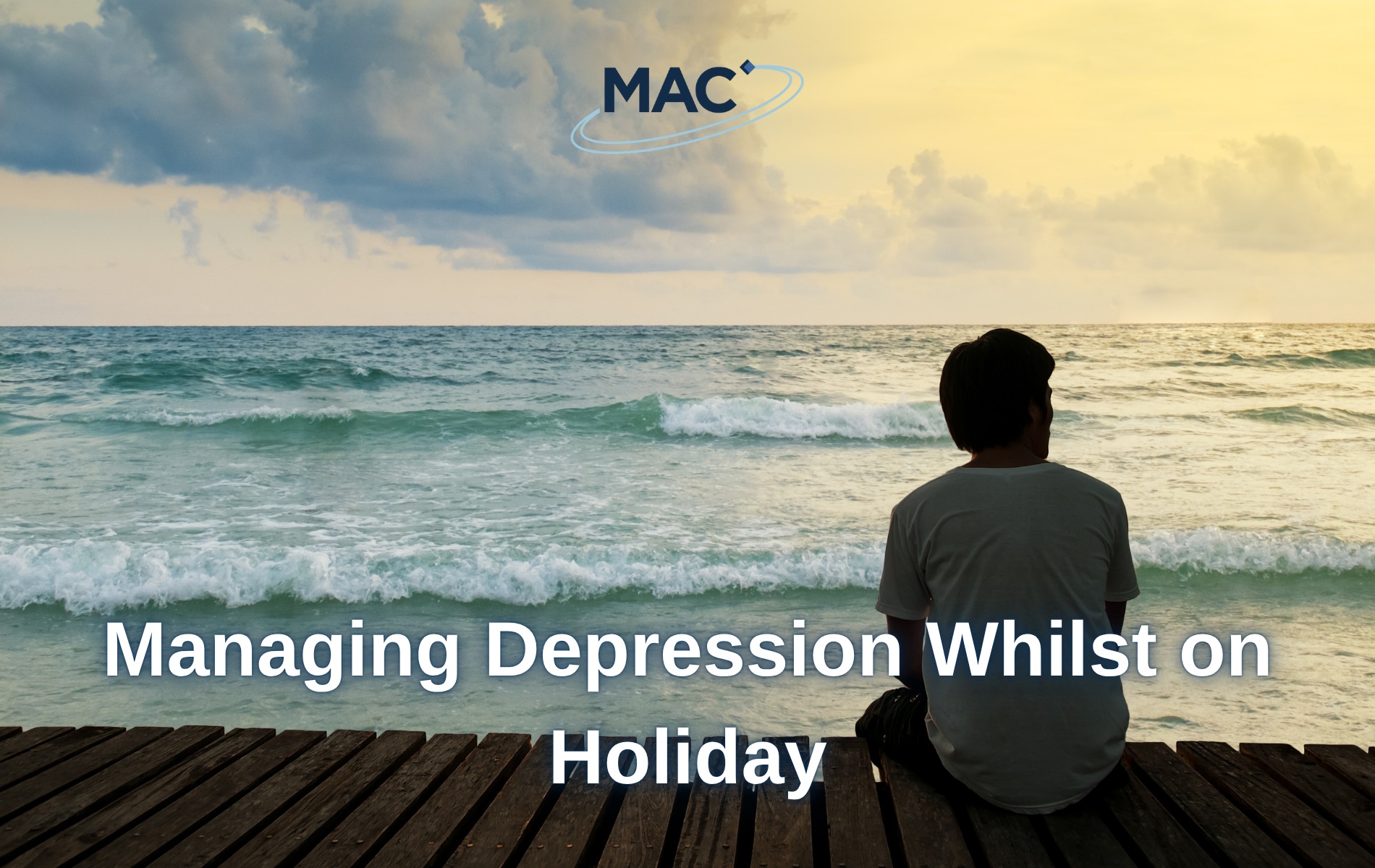Holidays are often portrayed as the ultimate escape: sunshine, relaxation, and a break from the everyday grind. Around 9 million trips abroad will be made by Brits this August1, but for those living with depression, the idea of a holiday can feel overwhelming rather than uplifting.
The pressure to feel happy, the disruption of routines, and the unfamiliarity of new environments can all contribute to emotional discomfort.
Understanding Depression
Depression is a mental health condition characterised by persistent sadness, lack of interest or pleasure in activities, and feelings of hopelessness. Around 1 in 6 people in the UK say they experienced moderate to severe symptoms of depression2.
Unlike grief, which often comes in waves and can include moments of joy or comfort, depression tends to be more constant and all-encompassing.
Setting Realistic Expectations
While a change of scenery can be refreshing, it’s not a cure. Give yourself permission to experience the full range of emotions, even while on holiday. Simultaneously, give yourself grace if you struggle to feel any emotions; up to 70% of people living with depression experience anhedonia, the inability to feel any joy or pleasure3. You don’t have to feel joyful every moment. Simply being present is enough.
Stick to Gentle Routines
Depression often thrives on unpredictability, so maintaining some structure can help. Try to keep your sleep consistent, eat at regular times and set aside moments for quiet reflection or journaling. Maintaining a journal even during holidaying can help to relieve symptoms of depression; research has shown that individuals with Major Depressive Disorder (MDD) who engaged in expressive writing for just 20 minutes a day for three days had significantly lower depression scores one day after the intervention4.
If you usually take medication or attend therapy, plan to ensure continuity, whether that’s packing enough medication or scheduling a virtual session.
Choose the Right Kind of Holiday
Not every holiday needs to be packed with sightseeing or socialising. If you’re feeling low, a slower-paced trip, like a countryside retreat, a quiet beach stay, or a wellness-focused break, might be more nurturing than a bustling city break. Listen to what your mind and body needs.
Communicate with Travel Companions
If you’re travelling with others, consider sharing how you’re feeling; letting someone know you might need space, or downtime can ease pressure and help avoid any potential misunderstandings. Almost 2/3 of people ‘put on a brave face’ to avoid talking about their mental health5 but opening up to a supportive companion can make a big difference.
Know When to Seek Help
If your symptoms worsen or you feel unsafe, don’t hesitate to reach out for help. Many countries have mental health support lines, and your travel insurance may include access to emergency care. Seeking help is a sign of strength, not weakness.
Improving Treatments for Depression
Here at MAC Clinical Research, we want to improve quality of life for people living with depression. We are conducting a clinical trial, investigating an alternative treatment for recurrent depression. To learn more about this clinical trial and register your interest, visit our Recurrent Depression Research webpage.
If eligible, you can receive up to £2,750 plus reasonable travel expenses.
1 Office for National Statistics – Overseas travel and tourism: July and August 2022 provisional results
2 Office for National Statistics – Cost of living and depression in adults, Great Britain: 29 September to 23 October 2022
3 International Journal of Neuropsychopharmacology – Anhedonia is associated with a specific depression profile and poor antidepressant response
4 Journal of Affective Disorders – An everyday activity as a treatment for depression: The benefits of expressive writing for people diagnosed with major depressive disorder
5 Mind – UK hiding behind a ‘brave face’ to avoid speaking about mental health




